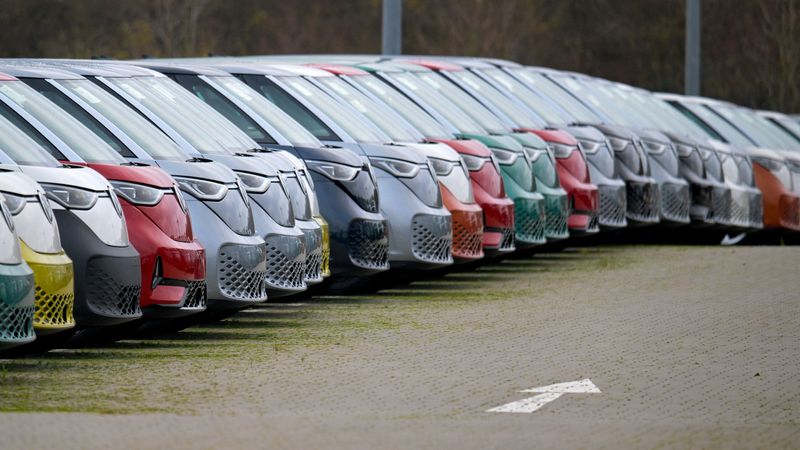By Alessandro Parodi
(Reuters) - Global sales of fully electric and plug-in hybrid vehicles rose by a quarter last year to over 17 million cars, helped by a fourth consecutive month of record sales in December as China continued to grow and Europe stabilised, data showed on Tuesday.
Incentives and emission targets pushed EV sales in China and aided Britain in overtaking Germany as Europe's biggest battery-electric market in 2024, research firm Rho Motion said.
WHY IT'S IMPORTANT
Electric car makers look into 2025 as a transformative year as China's sales growth slows, new emissions targets are setting off in Europe, and questions surround potential U.S. policy changes under the incoming Trump administration.
BY THE NUMBERS
Global sales of fully electric vehicles and plug-in hybrids rose 25.6% year-on-year to 1.9 million in December, albeit slowing for a second consecutive month, the Rho Motion data showed.
Sales in China jumped 36.5% to 1.3 million vehicles in December, and totalled 11 million for the whole of 2024.
In the United States and Canada, EV sales rose 8.8% to 0.19 million in December, while Europe reported sales of 0.31 million, up 0.7% from the same month of 2023.
In the rest of the world, December sales rose by 26.4%.
KEY QUOTES
"The removal of subsidies in Germany had a devastating impact on the whole European market, if the US follows suit, we may see the same there," Rho Motion said in a note.
Rho Motion data manager Charles Lester, commenting on November data following European Union's introduction of tariffs at the end of October, told Reuters that there was "no clear downturn in sales" of major Chinese-made EV models.
CONTEXT

An EU filing showed last week that automakers facing tougher CO2 emissions rules were planning to pool together and buy carbon credits from electric vehicle companies including Tesla (NASDAQ:TSLA) and Polestar (NASDAQ:PSNY) to avoid hefty fines.
Meanwhile China, in a bid to promote EV adoption while reviving economic growth, extended last Wednesday the auto trade-in subsidies into 2025 as part of an expanded consumer trade-in scheme.